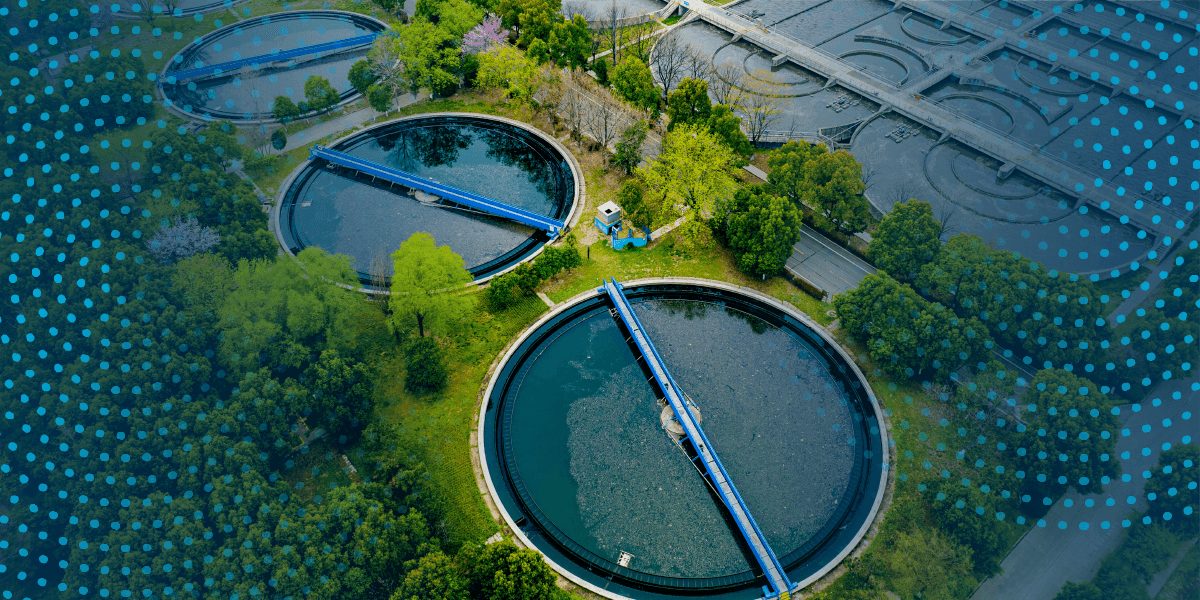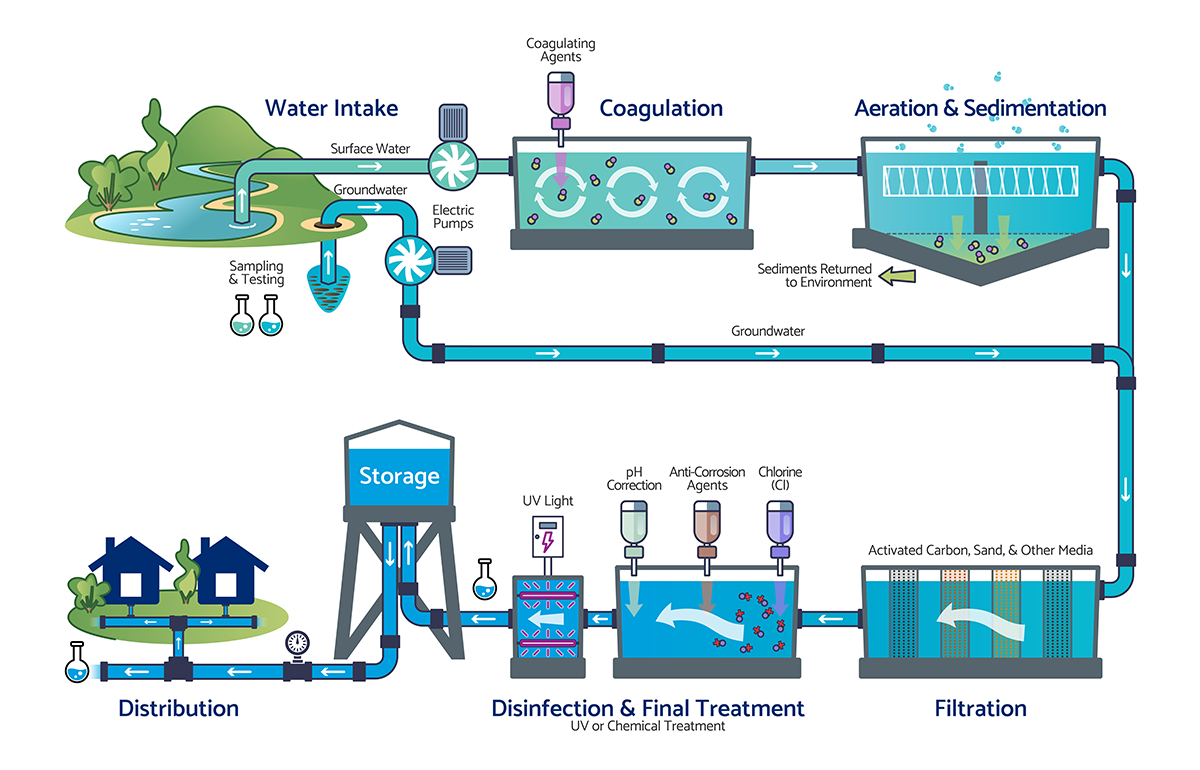Checking Out Water Technology Startups: Exactly How They Reinvent Sustainable Solutions
Water Technology startups are becoming crucial players in the pursuit for lasting remedies to international water problems. These companies take advantage of cutting-edge technologies to enhance water performance and management. Their contributions address pressing challenges such as shortage and contamination. Despite their capacity, they deal with numerous obstacles that can affect their success. Understanding these dynamics sheds light on the future of water sustainability and the role these start-ups may play fit it.
The Relevance of Water Technology in Today's World
As worldwide water deficiency intensifies, the importance of water Technology comes to be progressively obvious. Water Technology plays a vital function in attending to the difficulties posed by diminishing fresh water resources and raising need. It encompasses a wide variety of innovations, consisting of sophisticated filtering systems, wastewater therapy innovations, and smart watering solutions. These advancements not just improve the performance of water use yet also advertise sustainable techniques across numerous industries, consisting of agriculture, sector, and urban advancement.
Moreover, the relevance of water Technology prolongs past resource monitoring. It fosters resilience against environment adjustment impacts, such as floodings and droughts, by offering adaptive options for water preservation and monitoring. Furthermore, it sustains public wellness by guaranteeing access to risk-free and tidy drinking water. As the world deals with expanding water-related challenges, the combination of innovative water modern technologies is vital for promoting lasting growth and securing water availability for future generations.
Innovative Solutions From Water Tech Startups
While standard techniques to water management have offered their function, a brand-new wave of water technology start-ups is reinventing the market with cutting-edge solutions (Water Technology Startups). These firms leverage cutting-edge technologies to address pressing water issues, such as shortage, contamination, and inefficient circulation. Several start-ups use synthetic intelligence and artificial intelligence to maximize water usage and forecast need, resulting in even more lasting methods
Additionally, several companies concentrate on creating advanced filtering systems that eliminate pollutants and make water safe for intake. Others check out decentralized water treatment technologies, permitting areas to handle their water resources more properly. Some startups are introducing wise watering solutions that reduce water waste in farming, promoting ecological conservation.
Instance Studies: Effective Water Technology Startups
Countless water Technology startups have become leaders in resolving international water challenges through ingenious techniques. One remarkable example is Xylem, which concentrates on water analytics and clever facilities to maximize water use and decrease waste. Their options have actually been implemented in various communities, demonstrating substantial renovations in water monitoring efficiency.
One more effective start-up, Absolutely no Mass Water, has actually developed solar-powered hydropanels that draw out water vapor from the air, giving lasting drinking water in deserts. Water Technology Startups. This Technology has actually been released in several countries, guaranteeing neighborhoods have accessibility to tidy water
Last But Not Least, AquaVenture Holdings runs a varied profile of water-as-a-service solutions, addressing water scarcity through desalination and wastewater treatment. Their tasks have confirmed crucial in areas dealing with extreme water shortages, showcasing the capacity of innovative water modern technologies to develop long lasting, positive influences. These study highlight the transformative possibility of startups in the water Technology industry.
The Role of Smart Technology in Water Monitoring
Smart Technology plays an important duty in contemporary water management by leveraging IoT applications to maximize source use. Information analytics enhances efficiency by giving actionable understandings, while remote tracking services enable real-time oversight of water systems. With each other, these developments transform just how water is handled, advertising sustainability and functional efficiency.
IoT Applications in Water
As water shortage and administration difficulties increase worldwide, the integration of Net of Things (IoT) applications has actually become a critical service in enhancing water resources. IoT Technology promotes real-time surveillance and analysis of water systems, allowing more reliable use and administration. Sensors released in various water frameworks can track top quality, circulation prices, and leak, offering beneficial data to stakeholders. This data equips customers and energies to make enlightened decisions, lowering waste and improving preservation initiatives. In addition, smart watering systems use IoT to optimize water distribution for farming, making sure that plants receive the appropriate amount of water at the appropriate time. Overall, IoT applications are changing traditional water administration methods, cultivating sustainability and strength in water resource systems.
Data Analytics for Effectiveness
Taking advantage of data analytics is essential for boosting efficiency in water management. Water Technology startups are increasingly using sophisticated analytics to maximize source allocation and lower waste. By assessing data from different sources, these start-ups can determine patterns and patterns that educate far better decision-making. For circumstances, anticipating analytics can anticipate water demand, enabling utilities to change supply appropriately, consequently decreasing surpluses and shortages. In addition, real-time information processing enables the immediate detection of leaks and inadequacies within circulation systems, considerably lowering functional expenses. Data-driven understandings encourage stakeholders to carry out targeted conservation strategies, cultivating lasting practices. Fundamentally, incorporating information analytics into water monitoring not just improves procedures however also promotes lasting sustainability in water resource use.
Remote Tracking Solutions
While traditional water monitoring systems usually fight with inadequacies, remote tracking solutions are changing how water sources are managed. These ingenious technologies make it possible for real-time data collection and analysis, enabling stakeholders to monitor water high quality, circulation rates, and use patterns from afar. Utilizing sensing units and IoT devices, remote monitoring offers prompt insights that promote proactive decision-making. This shift not just boosts operational performance but likewise advertises sustainability by reducing water waste and enhancing source allotment. In addition, remote tracking systems can identify potential concerns before they intensify, consequently decreasing the danger of contamination or facilities failure. As water Technology start-ups proceed to develop these services, the market is positioned for substantial developments in sustainable water management practices.
Difficulties Encountering Water Technology Startups
Water Technology start-ups encounter significant challenges that can hinder their growth and success. Key problems include securing sufficient funding, navigating with complicated regulative settings, and completing in a crowded marketplace. These barriers need calculated preparation and innovation to get rid of.
Funding and Investment Challenges
Innovation in water Technology holds immense capacity for dealing with global obstacles, startups in this sector often encounter considerable funding and financial investment hurdles. Many capitalists continue to be careful, viewing the water industry as high-risk due to its complex regulatory landscape and lengthy growth timelines. Furthermore, startups typically have a hard time to demonstrate immediate productivity, which can prevent possible backers. Typical financial backing might overlook water modern technology, favoring fields with quicker returns, such as tech or customer items. Protecting grants and federal government financing can be competitive and taxing, additional complicating monetary security. Therefore, numerous ingenious water Technology startups discover themselves in a perilous setting, needing innovative financing methods to browse these economic obstacles and attain their goals
Governing Compliance Issues
Steering regulative conformity is a considerable obstacle for start-ups in the water Technology sector, as they must grapple with a myriad of regional, nationwide, and international policies. These guidelines often incorporate water quality standards, environmental management regulations, and safety protocols, which can differ extensively throughout territories. Start-ups may find it challenging to browse this facility landscape, particularly when scaling operations or going into brand-new markets. The prices connected with compliance can be substantial, diverting resources away from development and product development. Furthermore, delays in acquiring required licenses or accreditations can impede click here development and market entrance. Subsequently, a robust understanding of governing frameworks is vital for these start-ups to ensure lasting procedures and prevent prospective legal consequences.
Market Competition Dynamics
As water Technology start-ups arise in a competitive landscape, they face countless difficulties that can hamper their growth and innovation. Developed companies usually dominate the market, leveraging sources and experience to preserve their placements. Start-ups have problem with minimal financing, which limits study and advancement capabilities, making it difficult to contend on Technology and rates. Furthermore, the rapidly developing nature of water innovations demands consistent adaptation, more stressing startup sources. Regulatory hurdles can make complex market entrance, as compliance with ecological requirements is vital yet expensive. Bring in skilled skill in a niche field provides an additional challenge, as larger companies might provide even more enticing employment bundles. These aspects develop an intricate setting for water Technology startups aiming to succeed.
The Future of Water Technology and Sustainability

The future of water Technology will likely concentrate on integrating expert system and information analytics to optimize water circulation and usage patterns. By harnessing real-time information, business can anticipate shortages and handle resources better. Lasting practices will certainly become a foundation of the sector, motivating round economic climates where water is recycled and dealt with. Eventually, the ongoing evolution of water Technology will be crucial in creating durable facilities with the ability of satisfying the challenges positioned by environment modification and populace growth while promoting environmental stewardship.
Regularly Asked Questions
What Are the Secret Metrics for Evaluating Water Technology Startups?
Secret metrics for examining water Technology start-ups consist of market possibility, scalability, consumer procurement expenses, revenue growth, modern technology advancement, governing conformity, environmental effect, affordable advantage, and team expertise, all crucial for identifying long-term feasibility and success.
Exactly How Can Individuals Assistance Water Technology Innovations?
People can sustain water Technology developments by buying startups, promoting for policy modifications, taking part in neighborhood efforts, sharing understanding concerning lasting techniques, and advertising awareness of water issues via neighborhood occasions and social media.
What Are Typical Funding Sources for Water Tech Startups?
Typical funding sources for water tech start-ups consist of venture funding, government grants, crowdfunding systems, angel capitalists, and company collaborations. These economic methods aid facilitate advancement and development in sustainable water management modern technologies.

Which Industries Benefit The Majority Of From Water Technology Advancements?
Industries such as farming, energy, production, and metropolitan solutions benefit significantly from water Technology innovations. These developments boost water performance, minimize costs, and advertise lasting practices, inevitably adding to environmental conservation and source management.
Exist Any Type Of Regulatory Obstacles Certain to Water Technology?
Yes, water Technology faces regulative challenges, including conformity with environmental criteria, permitting procedures, and differing regional guidelines. These intricacies can prevent development and reduce the implementation of new modern technologies in the water management industry.
Water Technology start-ups are arising as vital gamers in the mission for lasting services to worldwide water concerns. As global water deficiency intensifies, the importance of water Technology becomes progressively noticeable. Others discover decentralized water treatment technologies, enabling neighborhoods to manage their water sources a lot more properly. Another effective start-up, No Mass Water, has created solar-powered hydropanels that extract water vapor from the air, supplying lasting alcohol consumption water in dry areas. Their tasks have actually confirmed necessary in regions facing serious water shortages, showcasing the possibility of innovative water modern technologies to develop long-term, positive influences.